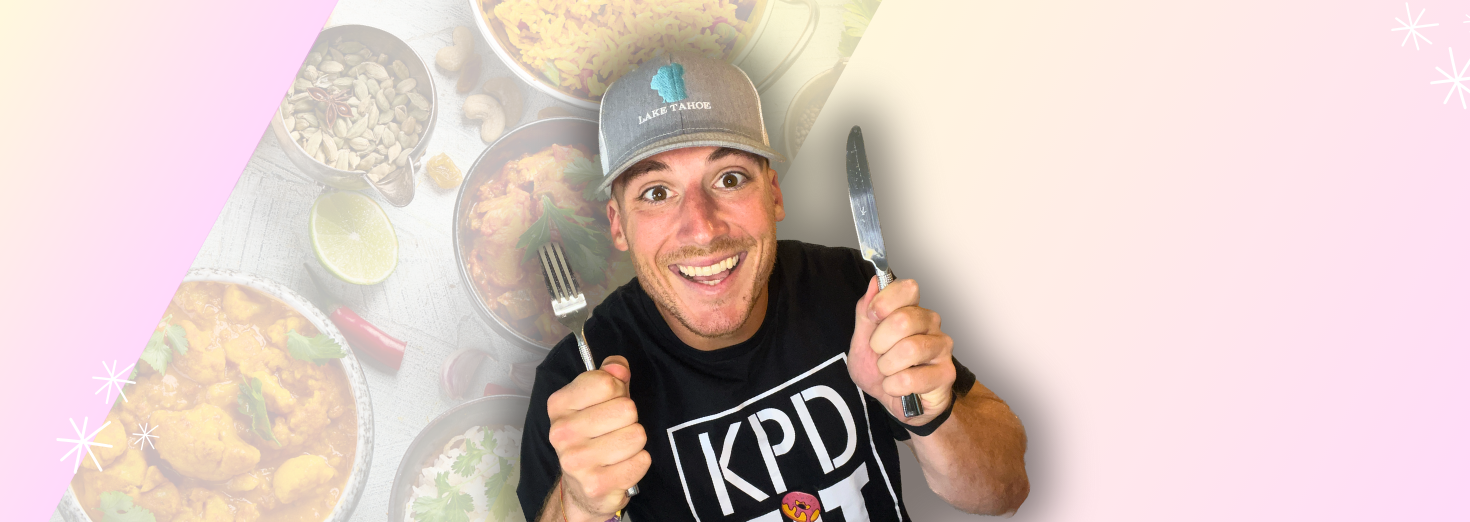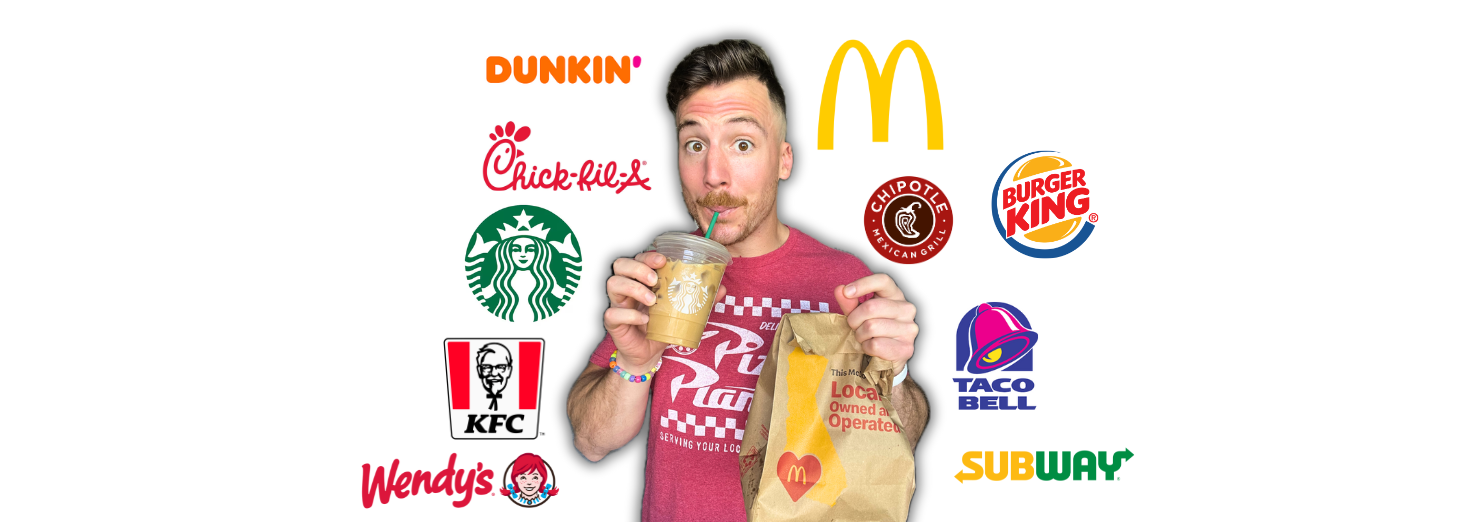In this blog, I'm going to help you understand the difference between Hunger Vs. Appetite.
Hunger and Appetite are terms that are often used interchangeably, but little did you know, they are very different. The difference between hunger and appetite can make magical changes in your life. Being able to understand them both will help you make better choices when it comes to reaching your health and fitness goals.
I'll stop chatting and get things rolling!
What is Hunger?
Imagine a grizzly bear that has been hibernating for months. When they finally wake up at the end of the winter, they are HUNGRY. There is this physical need to fuel their body.

Hunger is more of a physiological response that is controlled by the body's need for energy and nutrients. It is a natural feeling that occurs when the body needs food to fuel its activities. When you are hungry, you may feel a gnawing sensation in your stomach, low energy levels, or have difficulty concentrating.
I know that when I'm truly hungry, I turn into Joey Tribbiani from the show FRIENDS. In one episode when he was out to dinner, his date took a french fry off his plate, and he was shook!
When it comes to food, “Joey doesn't share food!”

When you are hungry, you turn into that grizzly bear and have one thing on your mind until it is satisfied; TO EAT!
So, What is Appetite?
Appetite is more like that influential friend who always encourages risky behavior (we all know that person). When you hang out with them, they tend to influence you to act out and make not-so-great choices. Once in a while, it can be fun and adventurous, but most of the time it will get you in trouble.
You learn to push back on your friend at times.

Appetite is more of a psychological response. It is influenced by factors such as emotions, habits, or environment. It is this desire you get to eat, regardless of whether the body is truly hungry. Appetite can be influenced by the sight, smell, or taste of certain foods, as well as by emotional situations such as stress, boredom, or tiredness.
When experiencing this appetite feeling, you may find yourself thinking about food or craving specific foods, even if you are not physically hungry.
A great example of appetite is from the episode of FRIENDS (yes, I know I am using a lot of FRIENDS examples, but I mean it's the best show ever!), where Chandler and Rachel can't stop eating Mrs. Braverman's cheesecake.
Chandler finds himself really enjoying the cheesecake to the point where he says, "I'm full, and yet I know if I stop eating this, I'll regret it."

This cheesecake is causing him so much gratification in the moment (in the short-term) that even when he is full, he can’t help himself; he keeps eating it.
If you are resonating with this, realize this is more of an emotional hunger you feel (appetite) vs. a physical hunger.
Here is a saying I share with my 1-on-1 weight loss clients:
If (physical) hunger isn’t the issue, food is not the answer.
Get curious. Seek out what that possible emotion is that you are trying to cope with.
Maybe it's stress from work or a co-worker.
Maybe it's boredom, and you are just looking for entertainment through food.
Or maybe it is even this lack of joy and pleasure (or dopamine) in your life, but food has been that thing to provide it.
Seek out switching the act of eating with something else. It could be walking, therapy, conversation with a friend, journaling, working out, increasing self-care (massages, pedicures, haircuts), etc.
Other emotions could also be tiredness, sadness, guilt, fear, anger, or loneliness.
What to do now?!
I know what you’re wondering:
“Kev, I struggle with the appetite thing all the time! How can I fix it?!”

I got you!
Here are 12 Ways to Help with Hunger and Manage Your Appetite
1. Plan Ahead:
Plan to know what you will eat at least 24 hours in advance. This will help you understand what you expect and prepare ahead of time.
BUT, also plan your treats and more flexible days, as well. We plan so much to be on track all the time that we either forget to make sure we enjoy a treat once in a while, which helps with sustainability (not getting burnt out or feeling deprived, or that the moment we slip-up, we go banana pants). Work flexible meals into your diet to help you mentally with the journey!
2. Set Up Your Environment:
Go grocery shopping and prepare food ahead of time.
Make nutritious foods and snacks readily available and convenient, and make tempting “junk” food and snacks more inconvenient.
Sometimes the best way to get rid of temptations is to get rid of the temptations. It could be best to get them out of your house for now.
3. Apple Test:
If you are still determining if it is actual hunger or appetite, ask yourself if you are hungry to have an apple (an orange, mango, banana, raspberries, or even some protein and veggies).
If the answer is yes, fantastic, have an apple; if not, now you know it is more of a craving/appetite situation. Also, if you constantly find yourself struggling with true hunger, go read my blog on How to Stay Full in a Calorie Deficit!
4. Practice Mindful Eating (Slow Down):
Slow down when you are eating, and slow down when in a moment where you feel a bit more anxious.
Pay attention to your food and eat slowly, savoring each bite.
Take a couple of deep breaths, put your fork down between bites, and take breaks throughout your meal to check in with yourself.
Slow things down to allow you to gather your thoughts and emotions.
This can help you feel more satisfied and reduce the likelihood of overeating.
5. Start Adding In More:
Focus on adding more whole, nutrient-dense foods that provide sustainable energy and promote satiety. Add more protein, fruits, vegetables, whole grains, high-fiber foods, and healthy fats to your diet.
(Check how these tips on How to Increase Your Protein Intake)
6. Follow the 20-Minute Rule:
Before having a snack, treat, or going up for seconds, set a time and wait 20 minutes. Go read a book, walk, call a friend, do some stretching, write in your journal, meditate in your bed, shower, etc.
After 20 minutes, see how you feel.
A lot of the time when it is more of an appetite feeling, those feelings subside.
7. Make the Switch:
I mentioned this above; rather than eating to fill that emotional hunger, try switching it with another activity that will fulfill the emotion (walking, meditation, working out, massage, etc.)
8. Stay Hydrated:
Drinking plenty of water throughout that day can help curb your appetite and reduce cravings.
9. Get Enough Sleep:
Lack of sleep can increase hunger and decrease energy levels, increasing appetite and cravings and making it more challenging to make decisions that allow you to stay on track.
10. Manage Stress:
Snacking and emotional eating due to stress are very common.
One of the best things you can do is to find ways to manage stress.
Therapy has changed my life, so I’m a massive fan of it, but perhaps activities like working out, walking, journaling, meditating, or talking with a loved one can work for you!
11. Eat On a Consistent Regular Schedule:
Eating at similar times each day will help regulate your hunger hormones so that you experience physical hunger at the same time each day. This will help you better predict when hunger will come and enable you to plan for it.
Additionally, eating regular meals and snacks can help stabilize your blood sugar levels, reducing cravings and hunger.
12. Seek a Coach or Support:
If you struggle with managing your appetite and cravings, don’t be afraid to ask for help.
Whether you seek support from a coach, nutritionist, dietitian, therapist, or healthcare professional, they can help you develop a personalized plan to manage your cravings and appetite and work with your specific struggles. Book a free, no obligation private coaching call with me today!
Spend some time in the next couple of days focusing on whether you are experiencing hunger or appetite. It can make a huge difference in the number of calories you consume in a day and in reaching your weight loss goals.
I hope this was helpful, but as always, feel free to reach out if you need anything!




SUBMIT YOUR COMMENT